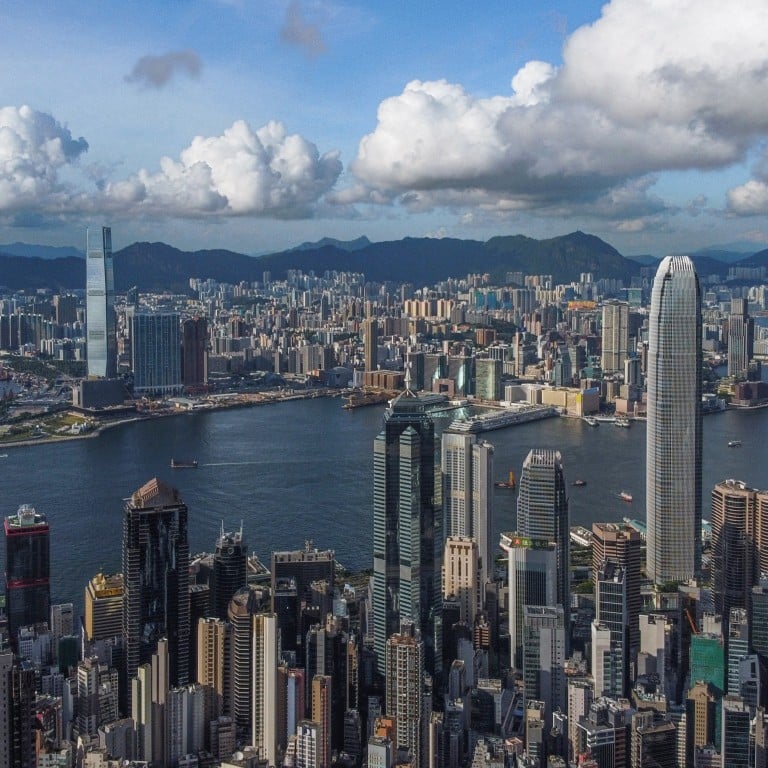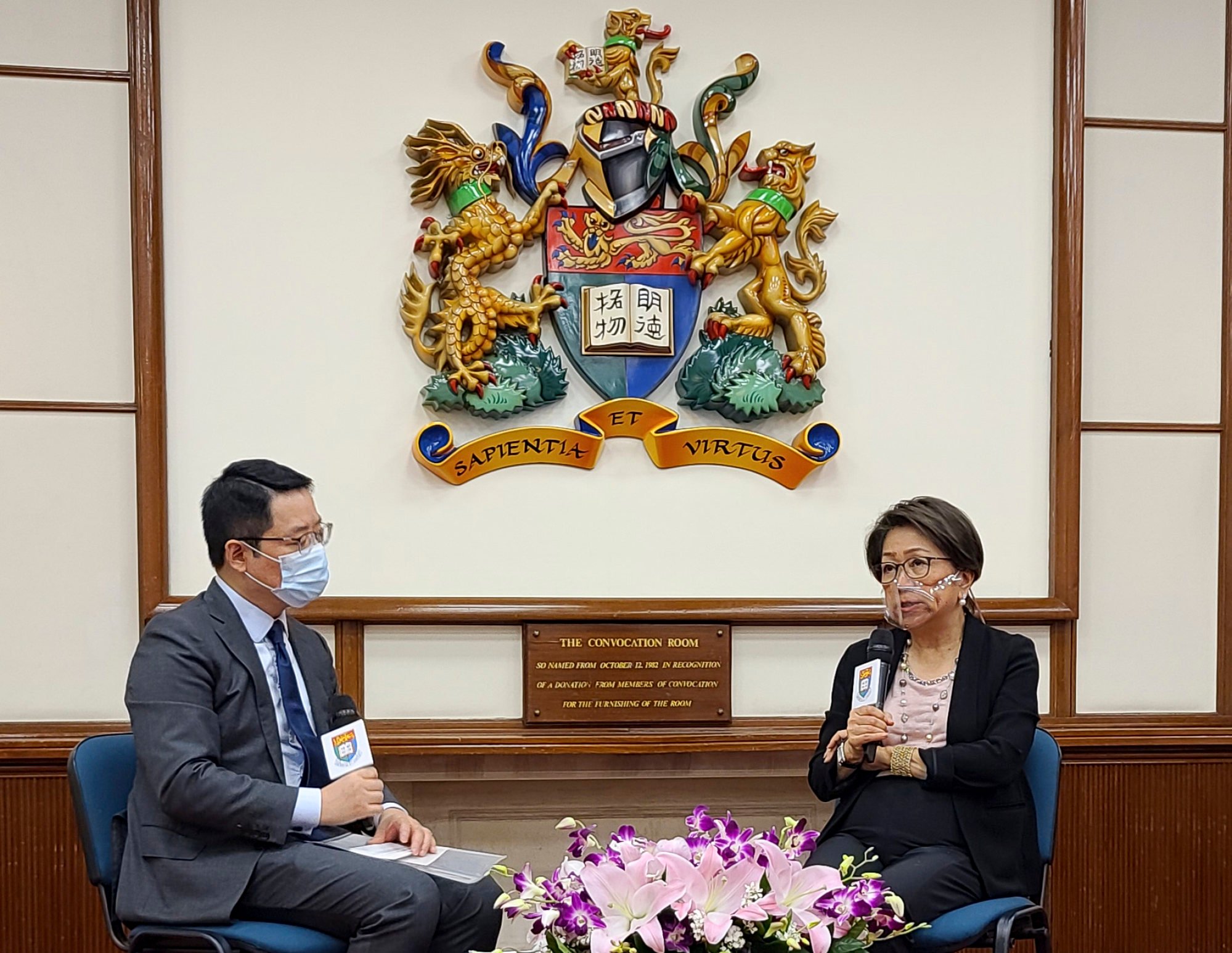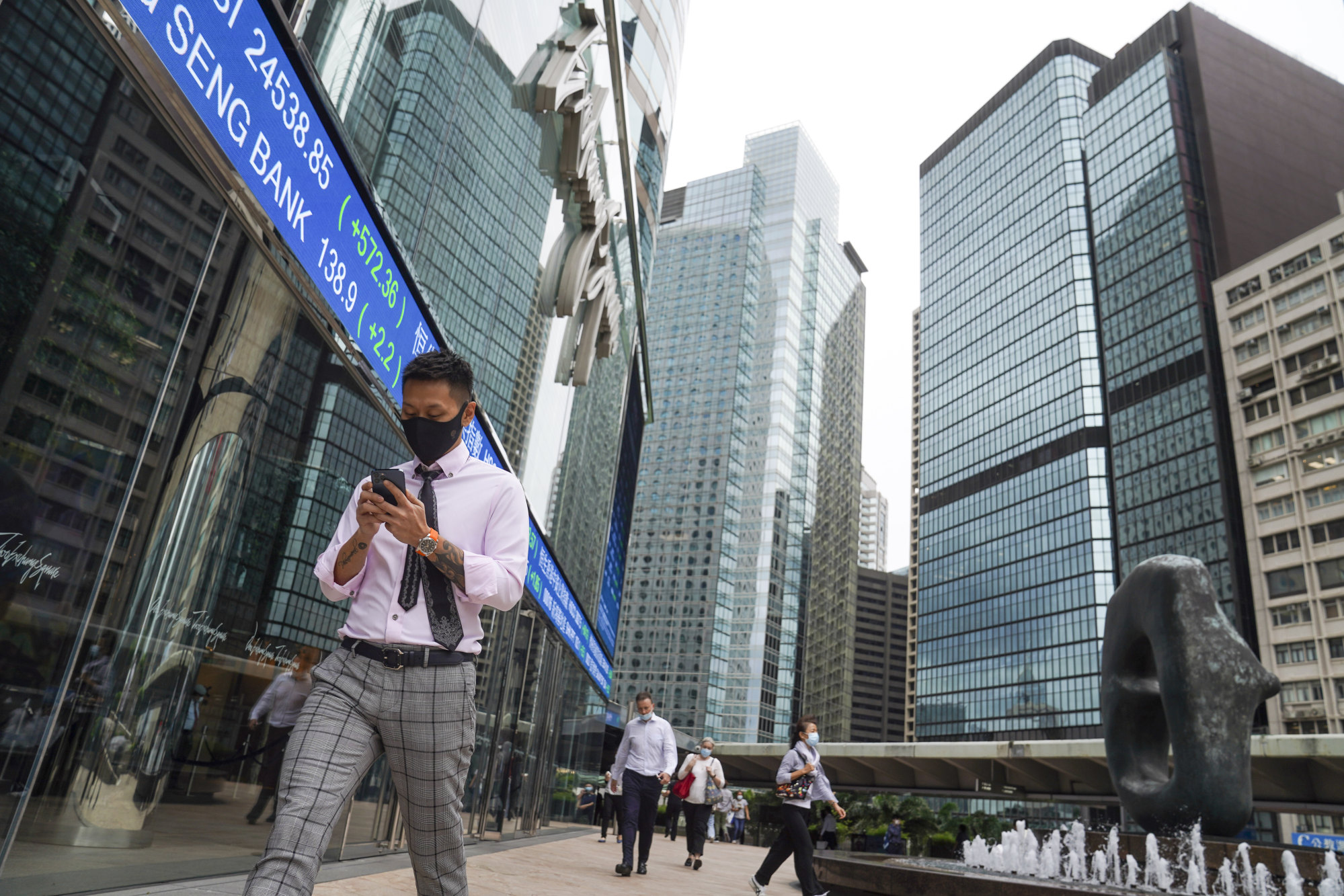
Hong Kong to top Singapore as international financial hub thanks to role as super-connector to China: HKEX chairwoman
- Singapore may have the edge at the moment, but Hong Kong has more longer-term advantages to attract capital and talent, HKEX boss says
- Hong Kong’s connection to the Greater Bay Area is like New York City sitting right next to Silicon Valley, Laura Cha argues
Hong Kong will win out over Singapore as an international financial centre in the long term, as the city will attract capital and talent while playing a key role bankrolling innovation in the Greater Bay Area, according to the boss of bourse operator Hong Kong Exchanges and Clearing (HKEX).
“While Singapore may be in an advantaged position in the short term to tap talent and investment, Hong Kong has many unique advantages for the long term to attract capital and talent, due to our rule of law, transparency, reliability and connection with China,” Laura Cha Shih May-lung, chairwoman of HKEX, said in a forum at the University of Hong Kong on Wednesday.
Cha answered “definitely yes” when one of the hundreds of students attending the event questioned whether Hong Kong can still compete with Singapore as a financial hub.
“Hong Kong has a lot of strengths, including the free flow of information and free flow of capital, while we also act as a super-connector between China and the world,” Cha said.

She admitted that the social unrest in 2019 and the pandemic since 2020 have led people to question Hong Kong’s status.
Hong Kong and the mainland are among the last remaining places that continue to require incoming travellers to go through hotel quarantine, while Singapore has removed almost all restrictions. This has led many international business forums to move from Hong Kong to Singapore, and some Hong Kong companies have also shifted people there.
HKEX to push ahead with reforms, diversification as it targets new economy
People with “outstanding achievements” in sports, the arts, science or the academic world who do not meet the salary criteria will be able to qualify under Singapore’s Overseas Networks and Expertise (ONE) pass. Analysts expect these policies to help capture talent from Hong Kong.
Cha, however, said the business opportunities in the Greater Bay Area, as well as the development of green finance and innovation, will ensure Hong Kong’s position.

She also believes the dry spell of initial public offerings (IPOs) this year will be broken once the pandemic is over, as many companies need to raise funds in Hong Kong.
“In a post-pandemic era, many more companies will come to raise funds in Hong Kong,” she said.
The closed border between Hong Kong and mainland China over the past two years has slowed down the IPO process by preventing bankers, lawyers and accountants from accessing mainland companies, Cha said.
US-China audit deal to delay migration benefits for HKEX: Morgan Stanley
“It is also because the market condition is not good,” she added.
However, the HKEX has over 170 companies that have applied for listing, she revealed.
“In other words, these companies are waiting for the condition to turn better, and then they will come to the market,” she said. “When the conditions are better, the companies will come. What we are doing in the meantime, is that we are also streamlining our framework to make it easier in terms of processes, as we know there are areas we can improve on.”
HKEX will diversify products and pursue listing reforms after 27 pc drop in first-half profit
She said the bay area, with policy support from Beijing, will develop into a green financing hub and innovation centre, while Hong Kong can play a role raising capital for these projects and companies.
“Hong Kong’s role in the Greater Bay Area is just like New York sitting next to Silicon Valley,” she said. “Many international investors want to invest in the Greater Bay Area, but they do not know how. Hong Kong is the super connector to bring international capital to the Greater Bay Area. That is the way that we can help the Chinese economy, by getting more international investors to invest in the mainland companies.”
The bay area, encompassing Hong Kong, Macau and nine mainland cities, has a population of around 80 million, larger than the United Kingdom, as well as economic output comparable to South Korea.
.

